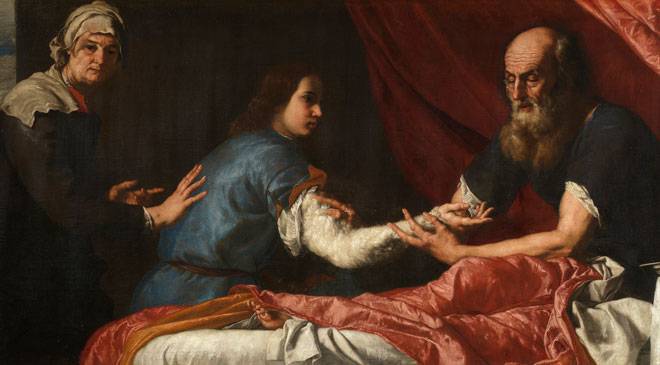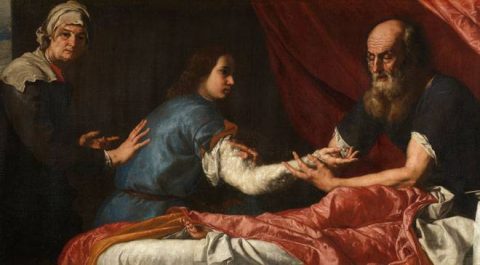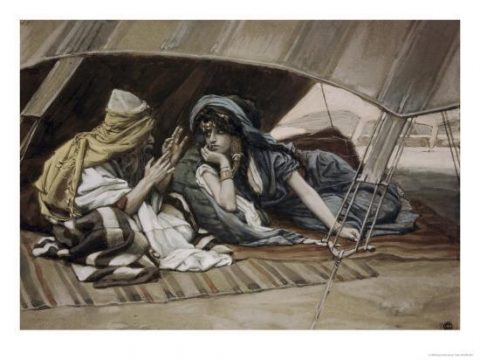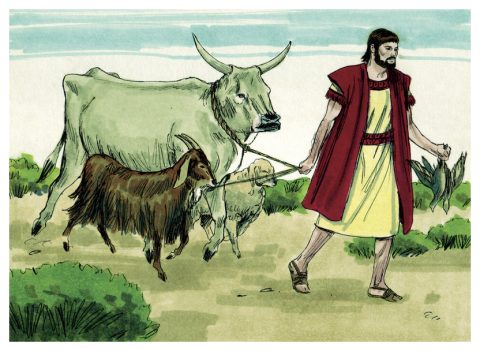Toledot – Gen. 25:19-28:9 (Nov. 29/30)
Toledot – Gen. 25:19-28:9 (Nov. 29/30)
This week’s Torah portion is Toledot – Gen. 25:19-28:9, and we learn from Rabbi Neil Janes, Executive Director of the Lyons Learning Project and Rabbi of West London Synagogue: Yitzhak said to Yaakov, “Come closer, that I may feel you my son” (Bereshit 27:21)”I am old now and I do not know the day of my death” (Bereshit 27:2) [These verses from our Torah portion offer us the opportunity to re-examine] the nature of aging, of ill-health and responsibility. We spend many hours discussing whether Isaac was going along with the ruse hatched by Rebecca and Jacob to steal the patriarchal blessing from Esau. Dressed up as Esau, Jacob approaches his father and pretends to be the older son. Today, [as we] read the text differently… Isaac’s vulnerability is evident… and heartbreaking. “Then his father Yitzhak said to him [Yaakov]: Come close and kiss me, my son” (Bereshit 27:26) In the extended discussion of honor of one’s parents in Babylonian Talmud Kiddushin 31b, Rabbi Abbahu recounts the example of Avimi his son. We’re told in the gemara that Avimi would run to his father’s call, even though he himself had five ordained sons (grandsons to R. Abbahu). On one occasion Avimi was called by R. Abbahu to bring water to drink. “Before he brought it, Rabbi Abbahu dozed off. Avimi bent over him until he woke up.” The language of the gemara to describe the dozing of Rabbi Abbahu is the word namnem, from the verb נום. The sense of the word is slumber, drowsy, even to be dying. Perhaps, the gemara hints, Rabbi Abbahu is edging towards the liminal world between life and death. And yet we know this verb well from Psalm 121:4 – “הנה לא ינום – the Guardian of Israel does not slumber.” Honoring parents is … akin to honoring the Holy Blessed One. “Yitzhak breathed his last and died, he was gathered to his kin, in ripe old age” (Bereshit 35:29) Isaac does not die immediately after the incident with his sons in [this week’s] Torah portion. Much unfolds before his eventual death, though we hear really nothing about his life of old age… These years – the hidden, often challenging, beautiful and uplifting, but as frequently full of diminishing health – have become more and more something for us to address as a people, as the direction of care now frequently extends up and down two or three generations…
Rav Yosef teaches… that both the [whole] tablets of the Covenant and the pieces of the broken tablets are placed in the Ark. One should learn from here that with regard to a Torah scholar who has forgotten his Torah knowledge due to circumstances beyond his control, e.g., illness, one may not behave toward him in a degrading manner. Although the first tablets were broken it is prohibited to treat them with disrespect, due to their sanctity. A Torah scholar who forgot the Torah knowledge he once possessed is likened to these broken tablets. (BT Menachot 99a)
We do not set aside people whose grandeur, on the surface, seems to have been diminished or whose vitality has dulled, who need to feel our presence to know who we are. Our parents are in a sense our Torah. They are the source of our legacy just as the Torah is the source of our divine legacy.


Toledot – Gen. 25:19-28:9 (Nov. 29/30)
“I am old now and I do not know the…

Chayei Sarah (The life of Sarah)- Gen. 23:1-25:28,
As the Torah Turns Rabbi Lader’s Weekly D’var Torah Chayei…
Vayera – Genesis 18:1-22:24 (Nov. 8/9)
As the Torah Turns Rabbi Lader’s Weekly D’var Torah Vayera…

Nov. 8/9 Lech Lecha
Lech Lecha – Gen. 12:1-17:27
